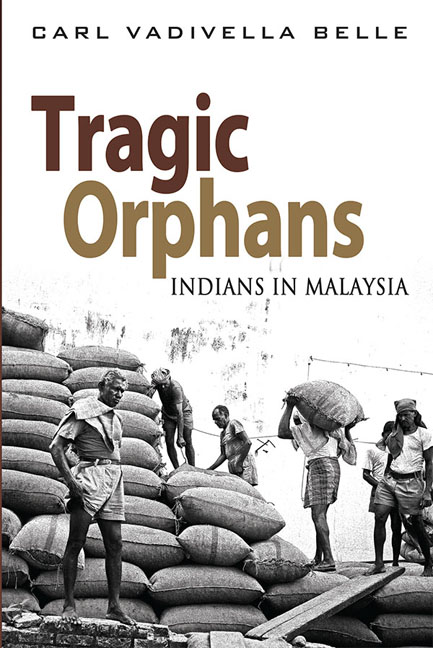Book contents
- Frontmatter
- Contents
- Acknowledgements
- List of Abbreviations
- Introduction
- 1 The Malay Peninsula: Early History, Melaka and the Colonial Setting
- 2 European Colonialism and the Malay Peninsula
- 3 India and the Development of British Ideologies of Empire
- 4 British Governance of Malaya
- 5 Slavery and Indentured Labour
- 6 Indian Indentured Labour in Malaya
- 7 Kangany Labour in Malaya
- 8 Other Indian Immigration
- 9 Indian Political Development to 1941
- 10 The Japanese Invasion, Subhas Chandra Bose and Indian Wartime Nationalism
- 11 The Post–war Period: Reform and Repression: 1945–48
- 12 From Federation to Merdeka
- 13 From Malaya to Malaysia: Singapore, 13 May and the New Economic Policy
- 14 The Mahathir Years: A Changing Malaysian Landscape
- 15 Abdullah Badawi, Islamization, and the Rise of Hindraf
- 16 Najib and 1Malaysia: A New Deal?
- Conclusions
- Bibliography
- Index
5 - Slavery and Indentured Labour
Published online by Cambridge University Press: 06 June 2017
- Frontmatter
- Contents
- Acknowledgements
- List of Abbreviations
- Introduction
- 1 The Malay Peninsula: Early History, Melaka and the Colonial Setting
- 2 European Colonialism and the Malay Peninsula
- 3 India and the Development of British Ideologies of Empire
- 4 British Governance of Malaya
- 5 Slavery and Indentured Labour
- 6 Indian Indentured Labour in Malaya
- 7 Kangany Labour in Malaya
- 8 Other Indian Immigration
- 9 Indian Political Development to 1941
- 10 The Japanese Invasion, Subhas Chandra Bose and Indian Wartime Nationalism
- 11 The Post–war Period: Reform and Repression: 1945–48
- 12 From Federation to Merdeka
- 13 From Malaya to Malaysia: Singapore, 13 May and the New Economic Policy
- 14 The Mahathir Years: A Changing Malaysian Landscape
- 15 Abdullah Badawi, Islamization, and the Rise of Hindraf
- 16 Najib and 1Malaysia: A New Deal?
- Conclusions
- Bibliography
- Index
Summary
This chapter will examine European conceptions of the institution of slavery, the crucial role played by slavery in the development of Iberian and North European colonialism, its ultimate abolition in the British Empire, and its replacement by Indian indentured labour. The latter sections will highlight the linkages and similarities between slavery and indentured labour, in particular the all-encompassing regime under which labourers toiled, and the unremitting severity with which it was enforced. It will also demonstrate how class and race were deployed by the plantation industry to simultaneously justify indentured labour and to stigmatize and tyrannize those entrapped within the system.
The late medieval era coincided with an unprecedented expansion of European power and subsequent control of substantial areas of the globe. In the period following the Renaissance, Europeans increasingly sought the produce of the tropics which could not be cultivated in the northern latitudes. During the subsequent mercantile expansion, Europeans secured a commanding role in the purchase, transport, and marketing of tropical goods. The conquest of the New World provided European powers with the opportunity to acquire their own colonies and to develop trading economies based on the supervised production of commodities which were in demand in Europe. Initially this trade revolved about the procurement and sale of spices, but later expanded to include sugar, chocolate, tobacco and cotton. However, the profitability of the new economy depended upon the maintenance of low-price structures. This necessarily required the deployment of a disciplined and easily controlled workforce which was paid low wages or, preferably, none at all.
The Iberian colonization of the Americas was driven by a voracious appetite for territorial expansion and colonial settlement and was accompanied by a total disregard for the cultures and welfare of subject peoples. Enslavement of the indigenous populations having been thwarted by a Papal Bull of 1537 which declared the American Indians “full people”, the Iberians turned to African slaves. Medieval Christians were able to call upon Biblical exegesis to justify the enslavement of black Africans. Thus, while St Paul had sanctioned the principle of slave ownership (in I Corinthians), Noah's cursing of Ham and his descendants to eternal servitude (in Genesis) legitimized the subjection of designated branches of humanity.
- Type
- Chapter
- Information
- Tragic OrphansIndians in Malaysia, pp. 63 - 74Publisher: ISEAS–Yusof Ishak InstitutePrint publication year: 2014

